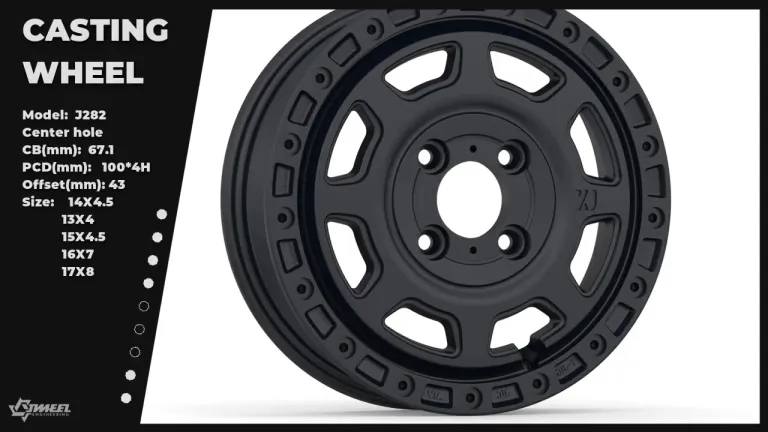Cast alloy wheels have increasingly gained popularity in the automotive industry, and for good reasons. These wheels are made by pouring molten aluminum into a mold, creating a strong and durable wheel that offers numerous advantages for vehicles.
Lightweight Construction
One of the main advantages of cast alloy wheels is their lightweight construction. Compared to traditional steel wheels, alloy wheels are significantly lighter, which not only improves the overall performance of the vehicle but also contributes to fuel efficiency. The reduced weight of alloy wheels means less rotational mass, allowing the vehicle to accelerate more quickly and brake more efficiently. This results in a smoother and more responsive driving experience on the road.
Superior Strength and Durability
In addition to their lightweight design, cast alloy wheels are also known for their superior strength and durability. The manufacturing process of casting wheels creates a wheel that is less likely to bend or crack under stress, making them a reliable choice for various driving conditions. This increased strength also means that alloy wheels are more resistant to damage from potholes or curb impacts, ensuring a longer lifespan for the wheel and potentially saving drivers from costly repairs.
Aesthetic Appeal
Another advantage of cast alloy wheels is their aesthetic appeal. These wheels can be customized in a variety of styles, finishes, and colors, allowing drivers to personalize their vehicle and make a statement on the road. Whether it’s a sleek and modern look or a more classic design, alloy wheels can enhance the overall appearance of a vehicle and increase its visual appeal.
Improved Heat Dissipation
Furthermore, cast alloy wheels offer improved heat dissipation compared to steel wheels. The aluminum construction of alloy wheels allows heat to dissipate more quickly, reducing the risk of overheating and enhancing the performance of the braking system. This can be particularly beneficial for high-performance vehicles that experience intense braking conditions, as alloy wheels can help maintain optimal brake performance and prevent brake fade.
Easy Maintenance
In terms of maintenance, cast alloy wheels are relatively easy to care for compared to other types of wheels. Because of their corrosion-resistant properties, alloy wheels are less prone to rust and can maintain their appearance for longer periods of time with regular cleaning and maintenance. This not only saves drivers time and money on upkeep but also ensures that the wheels continue to look their best over time.
Overall, the advantages of cast alloy wheels in automotive engineering are clear. From their lightweight construction to their superior strength and durability, alloy wheels offer a range of benefits for drivers looking to enhance the performance and appearance of their vehicles. With the versatility, customization options, and long-term value that alloy wheels provide, it’s no wonder they have become a popular choice for automotive enthusiasts around the world.